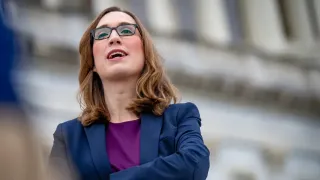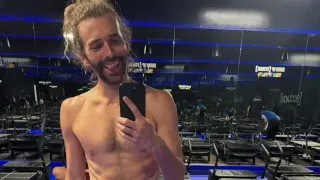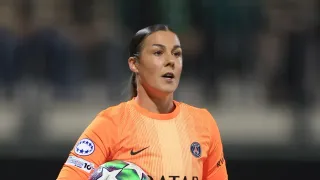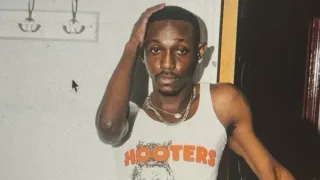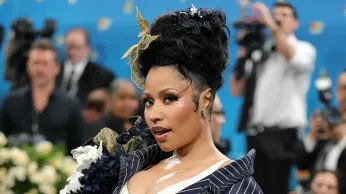
7 hours ago
Nicki Minaj, Trump, and Twitter Firestorms: What Happens When Pop Culture Meets Politics?
READ TIME: 4 MIN.
Nicki Minaj has never been one to shy away from controversy, but her latest comments—publicly praising Donald Trump for"drawing attention" to the alleged persecution of Christians in Nigeria—have reignited debates about celebrity influence, misinformation, and the diverse values of her fanbase. For the LGBTQ+ community, whose history is marked by fighting both political and cultural battles, Minaj’s headline-grabbing statements have landed with a thud—and a lot of questions about allyship, intersectionality, and who gets to frame the global narrative.
It all started when Minaj reposted a message from Donald Trump, in which the former president claimed “thousands of Christians are being killed” in Nigeria and declared Christianity was facing an existential threat there. Minaj added her own words of gratitude: “Reading this made me feel a deep sense of gratitude. We live in a country where we can freely worship God. No group should ever be persecuted for practising their religion. We don’t have to share the same beliefs in order for us to respect each other” .
Within hours, Twitter and Instagram erupted. Fans and critics alike flooded Minaj’s mentions, with some accusing her of spreading dangerous misinformation, others questioning her motives, and many LGBTQ+ voices expressing disappointment and concern."There’s no campaign against Christians in Nigeria. Boko Haram attacks everyone—including Muslims," wrote one commenter, echoing findings from organizations tracking violence in Nigeria, which show no evidence that Christians are being killed at a higher rate than Muslims .
Nicki Minaj’s fanbase is famously diverse, with a large contingent of LGBTQ+ listeners who have long celebrated her outspoken style and flamboyant self-expression. But this latest episode has triggered a reckoning over what it means for a queer icon to praise a politician whose record on LGBTQ+ rights is, at best, fraught.
For many, the issue isn’t just about the facts on religious violence—it’s about the intersection of faith, politics, and identity. The LGBTQ+ community knows firsthand the pain of being targeted for who they are and how religion has often been weaponized against queer lives. That’s why Minaj’s comments, taken as implicit endorsement of Trump’s rhetoric, feel especially jarring. As one fan tweeted, “Nicki, you’ve always been about freedom and being yourself. Why amplify someone who’s actively worked to roll back LGBTQ+ protections?” .
The incident puts a spotlight on the unique power—and responsibility—of celebrities in shaping public discourse. Minaj’s massive platform means her words travel fast and wide, bringing attention to issues that might otherwise go unnoticed. But when those statements are based on disputed or misleading claims, the consequences can be real, especially for communities whose rights and safety depend on accurate representation.
Organizations like the BBC and data analysts tracking violence in Nigeria have refuted Trump's—and by extension, Minaj’s—assertion that Christians face disproportionate persecution, noting the complexity of the crisis and the shared suffering among religious groups . For queer audiences attuned to the dangers of misinformation—especially when it comes to global struggles for human rights—the backlash is more than a trending topic; it’s a call to demand nuance and accountability from their icons.
Nicki Minaj’s comments have also reignited conversations about intersectionality—the idea that our identities and struggles are interconnected. For LGBTQ+ people, solidarity with other persecuted groups is foundational. But that solidarity should be rooted in truth and empathy, not political opportunism or selective outrage.
Some queer activists have pointed out Minaj’s silence on issues like anti-LGBTQ+ violence in Nigeria and other regions, questioning why her advocacy appears to stop at specific religious groups. The critique is not just about Minaj, but about the broader tendency of pop culture figures to cherry-pick causes that align with their brand, rather than championing justice for all marginalized people.
The fallout from Minaj’s comments shows a fanbase grappling with disappointment, but also mobilizing to hold their idols to account. Social media is awash with calls for Minaj to clarify her stance, educate herself on the facts, and recommit to the values—freedom, respect, and authenticity—that made her a queer icon in the first place.
As the 2024 U.S. election looms, these debates are set to intensify. Minaj has already made headlines for criticizing Vice President Kamala Harris and voicing support for Trump, further polarizing fans and raising questions about the role of pop stars in shaping political opinion .
For LGBTQ+ audiences, the Nicki Minaj controversy is a reminder that allyship is an ongoing conversation, not a one-time declaration. It’s about showing up for the full spectrum of human rights—not just the causes that trend on Twitter. And as queer communities have always known, it’s about speaking truth to power, even when that power looks like a platinum-selling superstar.
The story isn’t just about Nicki Minaj—it’s about us. How we hold our icons accountable, how we demand better, and how we keep fighting for a world where no one is persecuted for who they are, what they believe, or how they love.
